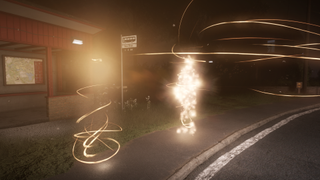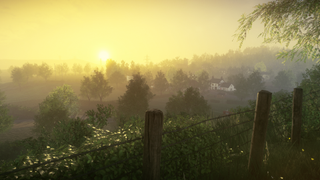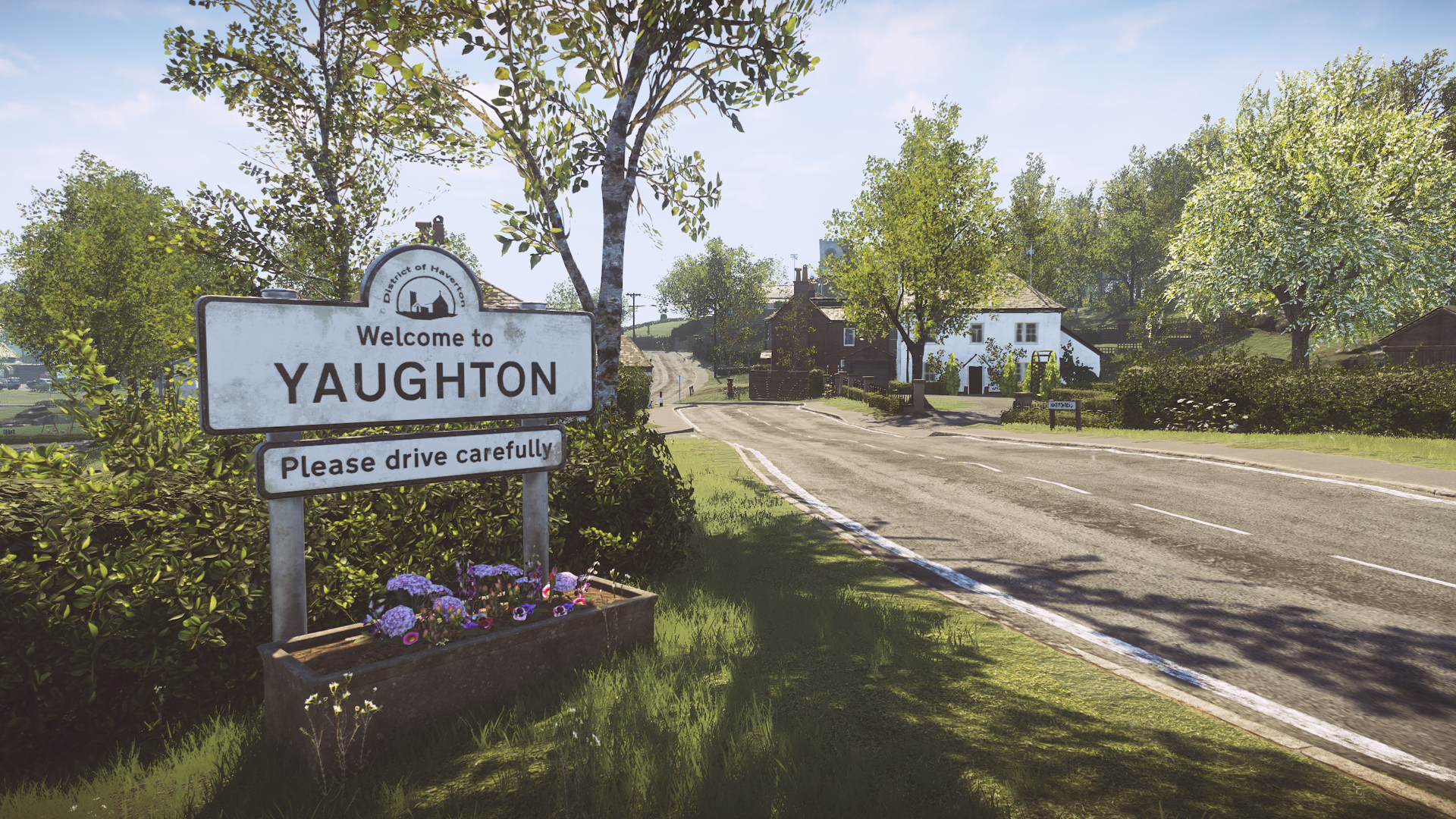Our Verdict
A leisurely stroll through a beautiful apocalypse. Rapture is stirring and heartfelt, but may be too slow and hands-off for some.
PC Gamer's got your back
Hidden among the rolling hills of the Shropshire countryside, Yaughton Valley is a sleepy, secluded community that embodies the idyllic image of rural England. It’s an unusual setting for a story about the end of the world, but that’s precisely what makes Everybody’s Gone to the Rapture, a new game from the creator of Dear Esther, so special. As you ramble through this rich, pastoral landscape, you realise that there are no other people around, begging the question: where did everybody go?
What is it? A first-person adventure about the end of the world.
Expect to pay £15/$20
Developer The Chinese Room
Publisher Sony Computer Entertainment
Reviewed on GeForce GTX 970, Intel i7-5820K, 16GB RAM
Multiplayer None
Link Official site
The first place you visit is the village of Yaughton itself. Walking along the quiet, leafy streets you see hastily abandoned cars, discarded suitcases, and—perhaps most unsettling of all—an empty, lifeless pub. Ominous government posters mention a quarantine and you get the impression that whatever happened here happened recently. But the village isn’t completely lifeless. Ghostly human shapes made of shimmering light reenact moments from past, and through these you’re given an intimate glimpse into the lives of the people who lived there, as well as clues about their mysterious disappearance.
Each area of the valley you visit focuses on a different character. In Yaughton we follow a priest as he interacts with his parishioners, and we learn of strange events happening in the village just before the mass disappearance. Later we shadow a farmer working on the outskirts of town, a retired busybody, and the troubled owner of a lakeside holiday camp. They’re evocative stories of ordinary people dealing with extraordinary things, and the natural dialogue and understated voice performances make the conversations relayed by those ethereal figures of light feel real. And each character’s story has a dramatic denouement, some of which are genuinely moving.

Apocalyptic fiction rarely focuses on how normal, everyday people would cope when faced with the end of the world, which makes Rapture’s story all the more powerful. I couldn’t help but see myself and my loved ones in the people living in the valley, which gave it an extra resonance. It’s in these small, intimate vignettes that the game really shines, but the larger arc isn’t quite as effective. It’s a fairly standard science fiction story, and although I found it compelling for the most part, it was ultimately less interesting than the lives of the villagers.
Stories about ordinary people dealing with extraordinary things
The valley itself is a remarkable feat of world-building. Not only is it stunningly beautiful, but it captures the ambience of rural England perfectly. I’ve been to places like Yaughton before, and the resemblance is uncanny. It’s a huge space too, incorporating a variety of lush, detailed terrain, from golden wheatfields to shadowy forests.
My favourite area is the holiday camp, and I love that when you arrive it starts to rain—an experience anyone who grew up in Britain will be all too familiar with. The overcast sky, tennis courts, and rows of caravans here provide the setting for one of the best, and most emotional, stories in the game.
Jessica Curry’s enchanting orchestral score is fantastic too, with stirring choral pieces that echo the game’s religious themes and help define the emotional landscape of the story. A particularly brilliant piece titled ‘Carry Me Back to Her Arms’, which features a booming male choir and plays as you gaze across a beautiful sea of farmland, made my arms bristle with goosebumps.
The audio design is also wonderful, from the peaceful chirp of birds and the lazy buzz of insects, to the eerie signals crackling on radios. And there’s something inherently creepy about a phone mysteriously ringing in a deserted village.

Yaughton Valley is one of the most exquisite places to take a walk on PC, but that’s all you do. Compared to other first-person games with a story focus like Gone Home and Firewatch it’s a very passive experience. Your only real interaction, besides opening doors and poking around in buildings, is ‘tuning’ orbs of light to reveal story and switching on the odd radio.
Your agency, outside of navigating the world, is extremely limited. Personally, I didn’t mind. The atmosphere, story, and world were so captivating that I was happy to go along for the ride. But be warned: it’s an incredibly slow game, with a glacial walking speed that’s barely improved by the ‘run’ button. I love slow games, but I found it slightly too ponderous at times.
Everybody’s Gone to the Rapture doesn’t tell its story in an especially interesting way. Events unfold in front of you and you watch them. It’s as simple as that. But what it lacks in narrative innovation it makes up for with a heartfelt story and a gorgeous world to explore. Sharing the lives of the residents of Yaughton Valley was a pleasure, and it’s a place I’m sure to revisit in the future. But you’ll have to be willing to yield to its passive nature and sedate pace to fully enjoy it.
A leisurely stroll through a beautiful apocalypse. Rapture is stirring and heartfelt, but may be too slow and hands-off for some.
If it’s set in space, Andy will probably write about it. He loves sci-fi, adventure games, taking screenshots, Twin Peaks, weird sims, Alien: Isolation, and anything with a good story.

